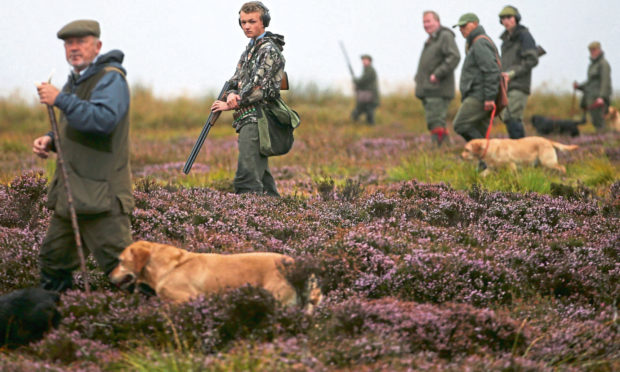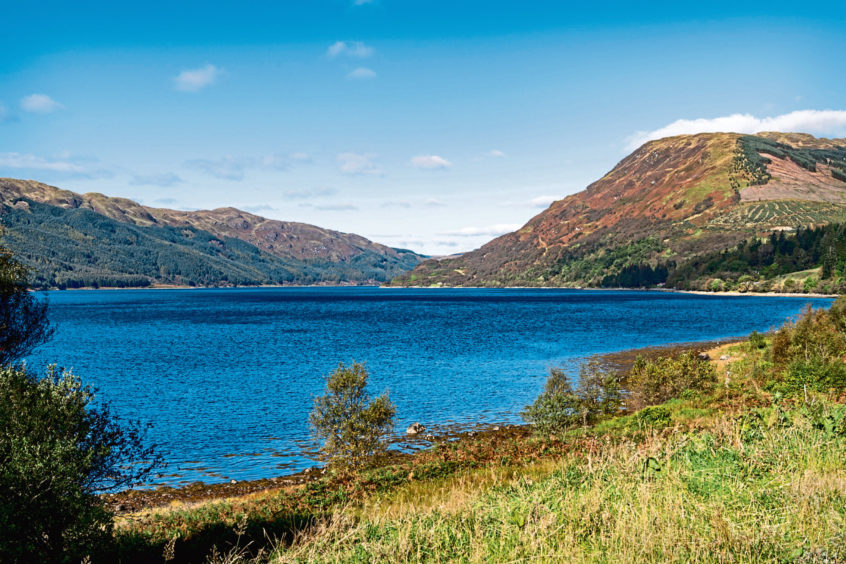Back writing for The Courier, Jim Crumley thinks of the music of nature, and the sickening discord of the senseless killing of our wildlife.
I LIKE to play the guitar. Usually jazz, usually solo. I have also dabbled with folk music and messed – I choose the word carefully – with classical.
Yet there is no doubt whatever about the most gratifying hours I have ever spent with a guitar in my lap. About 20 years ago I acquired the habit of wandering out to a little loch deep in the hills with an old and fairly distressed classical guitar. The loch had a sandy beach about 10 feet by three feet and a flat rock at one end where I sat. I played to the accompaniment of water lapping against the rock, or perhaps it was the other way round.
Every note was improvised. The music was unstructured. It drew not on a predetermined chord sequence but rather on water, hills, sky, wind, occasional bird, once an otter. It was, perhaps, the most creative and liberating thing I have done.
Then, when the guitar in my hands fell silent, every natural sound was instantly heightened. I could hear nature breathing. Nature can do that: free the animal within from all the distractions of human life, remind us that we too are nature. I buy a monthly magazine called Guitarist. It has just published an acoustic issue in which its editor wrote:
“Sitting alone with an acoustic guitar can feel intimidating at times. There’s no amp to make you mighty, no pedals to flatter you. It’s just you and the music. Yet that is exactly why every player should return to acoustic from time to time…”
It was a pointed reminder of that old time by the loch, but it also proved to be startlingly relevant to right here and right now. I had just read The Courier’s account of gamekeeper indignation at walkers who interfered with traps on a Perthshire estate. Tools had been stolen. Someone had been spat at. There was a quote:
“It is sickening when folk can’t just enjoy the countryside and their local walk without resorting to wrecking things.”
And three days later the story broke about the golden eagle tag that had been dumped in a river, also on a Perthshire estate, wrapped with lead so that it wouldn’t be found. Except that four years after the event, it just had been. Where, I wondered, was the golden eagle’s body dumped? What, you may wonder, has this to do with acoustic guitars? Mine is essentially a contemplative job. I seek out nature’s company and it works best when I am still and nature comes to me. I watch, I write it down. I have been doing this for a living for 32 years now, which is a lot of watching, and because it is also a lot of writing (and sketching and photographing) I carry a certain amount of knowledge around with me. When a keeper talks about people “wrecking things”, that is a good description in my mind of making 45 hen harriers disappear across Britain in the two years since the last column I wrote in this newspaper.
Relentless killing
It’s a good description for killing beavers that are supposed to be protected. It’s a good description for the mass cull of mountain hares that characterised some estates’ response to the Scottish Parliament environment secretary’s call for voluntary restraint during a consultation period following the passing of a new law to protect mountain hares. It’s a good description for the relentless killing of foxes just because they are foxes.
And yes, it’s a good description for the steady toll of golden eagles and sea eagles through shooting and poisoning and crow traps, and it’s a good description of the thousands of crimes against nature every year that never get reported. Someone was charged within days for interfering with that trap. No-one has been charged in four years with killing the golden eagle whose tag turned up in the Braan.
The reputation of Scotland’s deer and grouse estates has never been lower. My fear is that it will go a lot lower yet before serious resources are devoted to investigating wildlife crime. There are among the keepering fraternity in Scotland some very accomplished naturalists. I’ve met some of them, enjoyed talking to them, but I have never been able to rationalise how that accomplishment can co-exist with all the killing. How long before someone within the industry wakes up to the fact that its day is done, that its Victorian ethos is no longer acceptable?
The Guitarist editor was right. When you strap on an electric guitar, there is an amp to make you mighty, a pedal board to flatter you, and oh the deafening noise you can make! That’s why the acoustic guitar intimidates. You have to face the music. Yes, some people ruined some traps. But the people wrecking things in nature are the ones with the heavy metal. And nature is the original music.
Oh, the other thing I meant to say is thank you to David and Gillian and Jack at The Courier, it’s very good to be back.











